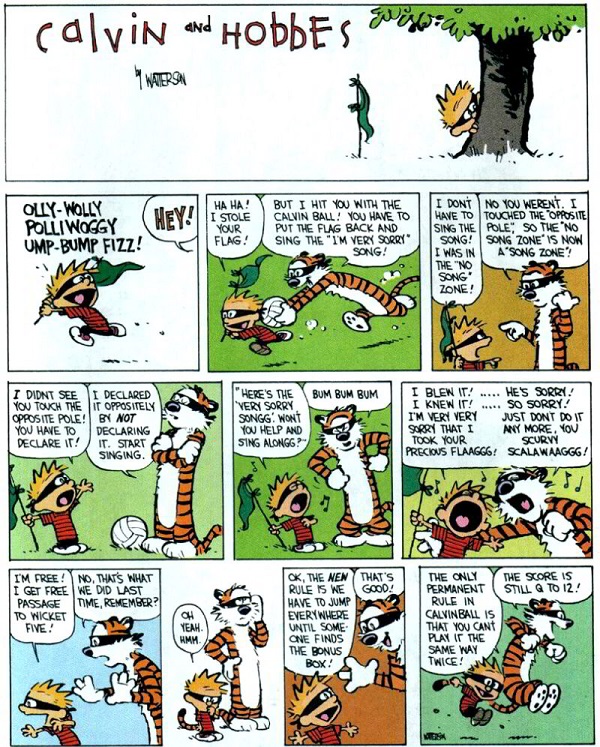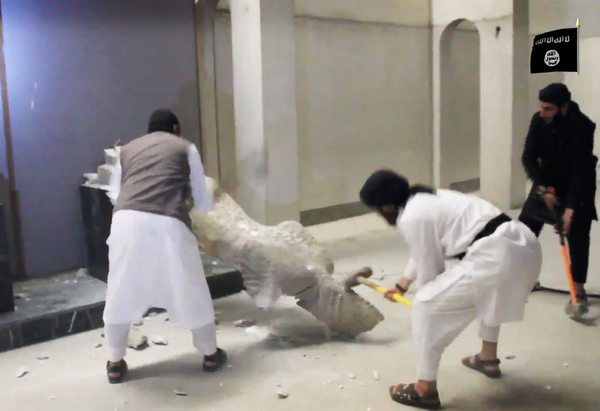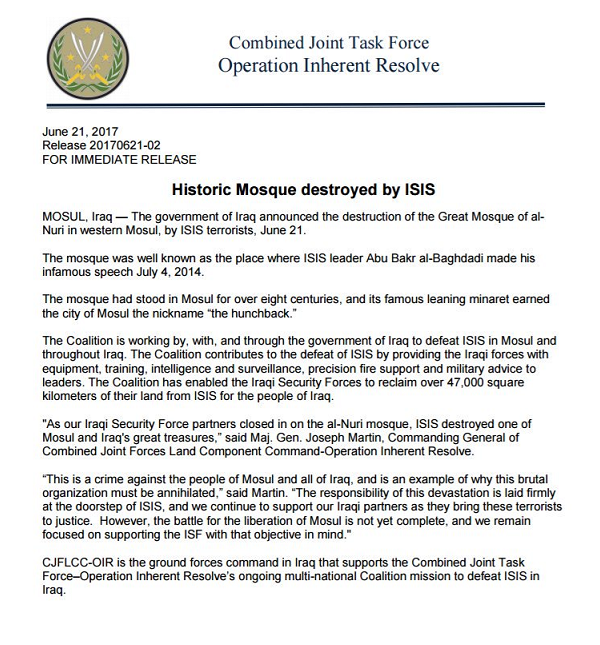[ by Charles Cameron — on changing our very notions of game and challenge — or unanticipating the unanticipated ]
.
Reading David Perkins, Big picture, not details, key when eyeing future from last year, and thinking:

**
It’s scary to read Gen. Perkins — the head of TRADOC — disagree with him, sometimes quite sharply along the way and particularly when he talks about games — and then wind up agreeing with the second half of this, his closing sentiment:
So now that we know what game we are playing and assumedly what is required to win it, we can employ these insights to lay out a path toward building the Army our country will need in 2025 and beyond. It is our duty, and our country depends on us to get it right.
We don’t know what game we are playing, nor — love that word “assumedly” — what is required to win it. And if I’m right about this, how can our potentially mistaken insights help us “lay out a path toward building the Army our country will need in 2025 and beyond” — when “getting it right” is liable to be an emergent property, only recognizable as such in retrospect?
Let me cut to my main objection, for which Gen. Perkins’ checkers and chess games are analogies. Of the two games, Perkins said:
Checkers and chess are played on the same style board, but the games are far from similar. For a long time, the Army has designed forces based on a “checkers-based” world outlook. Today, we’re switching to a “chess-based” appreciation of the world.
I’ll come back to this game metaphor in time, but the paragraph I first halted at, for which the games paragraph I just quoted is a metaphor, is this one:
Before the fall of the Berlin Wall, we lived in a “complicated” world, but one with a single defining enemy for which we could plan against. In today’s “complex” world, there is no single defined future foe with relatively known capabilities, doctrines and intent. This is not a minor point, as designing and building the future Army rests upon what kind of world we expect to see.
I’m not at all sure jointness will mean anything at all like “cross-service cooperation in all stages of the military processes, from research, through procurement and into operations’ — whether the services be Army, Marines, Navy, Air Force, or also include the National Guard, whether we think in terms of Land, Sea, Air, and Space, or throw in Cyber. What if jointness is better conceived of in terms of heart, mind and soul?
Our command structure isn’t structured along those lines, so we can’t put the Chief of Staff of the Heart, the Commandant of Minds, and the Chief of Soul Operations under the Chairman and Vice-Chairman and call them the Joint Chiefs — the very absurdity of the phrasing makes the whole idea almost ridiculous.
And yet heart, mind and soul — or for that matter, the Buddhist body, mind and speech — are the fundamental building blocks of a full and sane human personhood, and their social equivalents the equivalent bases of a full and sane human society.
Maybe heart, mind and soul are more basic than land, air and sea?
Did we ever think of that?
What I’m suggesting here, in fact, is that the challenges we face may differ from previous challenges in this: that they won’t fall into the expected mold, they won’t look to us like challenges at all, we won’t categorize or react to them as such — in short, that they will be oblique to our assumptions and expectations.
One other point of disagreement, briefly:
by 2005 we confronted a well-understood problem in Afghanistan and Iraq, and began optimizing much of the Army to meet that current threat
Oh really? You could have fooled Zarqawi!
**
Getting back to games, we have some very nice comparisons and metamorphoses already “in play” in the strategic literature. Perkins’ “Checkers to Chess” is one, “Ghess to Go” is another and more sophisticated example — Scott Boorman‘s The Protracted Game: A Wei-Ch’i Interpretation of Maoist Revolutionary Strategy is the classic here — “Chess to Star Trek’s 3-D chess” is another one worth considering, or “Chess to Mjolnir’s Game” for that matter, “Go to Buckminster Fuller‘s World Game” yet another, while “Go to the Glass Bead Game” is clearly one which would fascinate me personally..
But I’m convinced, as I’ve said before, that the game we need to understand is the one known as Calvinball:


Calvinball — Calvin and Hobbes‘ favourite game to play. There is only one main rule in the game — that you can’t play it the same way twice.
Now that game idea is an audacious one, rivaling and perhaps even surpassing Peter Suber‘s awesome game, Nomic:
in which the rules of the game include mechanisms for the players to change those rules, usually beginning through a system of democratic voting. Nomic is a game in which changing the rules is a move.
When I meantion Calvinball, I not infrequently quote the philosopher Alasdair MacIntyre:
Not one game is being played, but several, and, if the game metaphor may be stretched further, the problem about real life is that moving one’s knight to QB3 may always be replied to by a lob over the net.
Now that’s talking!
And Roland Barthes:
This public knows very well the distinction between wrestling and boxing; it knows that boxing is a Jansenist sport, based on a demonstration of excellence. One can bet on the outcome of a boxing-match: with wrestling, it would make no sense. A boxing-match is a story which is constructed before the eyes of the spectator; in wrestling, on the contrary, it is each moment which is intelligible, not the passage of time… The logical conclusion of the contest does not interest the wrestling-fan, while on the contrary a boxing-match always implies a science of the future. In other words, wrestling is a sum of spectacles, of which no single one is a function: each moment imposes the total knowledge of a passion which rises erect and alone, without ever extending to the crowning moment of a result.
Switching games?
We’re blurring game-boards in real time, according to CTC Sentinel editor-in-chief Paul Cruikshank:
**
Okay, here’s another mind in the Natsec arena, that switches the playing field from “game as cricket or chess” to “game as zero-sum or non-zero sum” — President Rouhani of Iran, writing an op-ed in the Washington Post — Iran, mark you, in WaPo — who says:
The world has changed. International politics is no longer a zero-sum game but a multi-dimensional arena where cooperation and competition often occur simultaneously. Gone is the age of blood feuds. World leaders are expected to lead in turning threats into opportunities.
Rouhani is pretty conservative in Iranian terms, though we sometimes consider him a reformer — but very “other” in his thinking, compared to ours. And if we wish to game him, our Red Team must be able to think as ably and otherly as he does.
How would TRADOC suggest we adapt to a shift in games of that sort?
**
H/t The Strategy Bridge.









